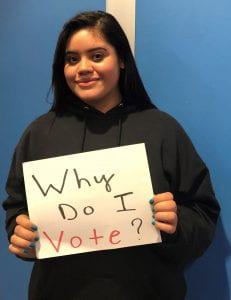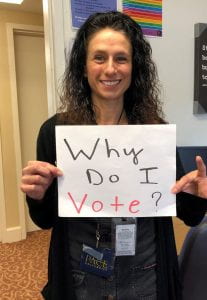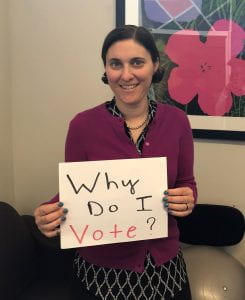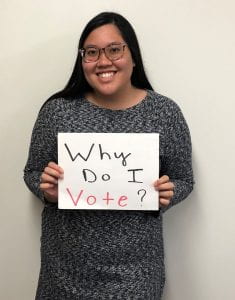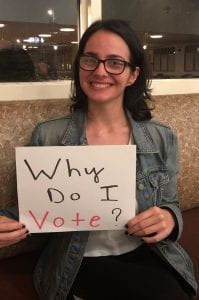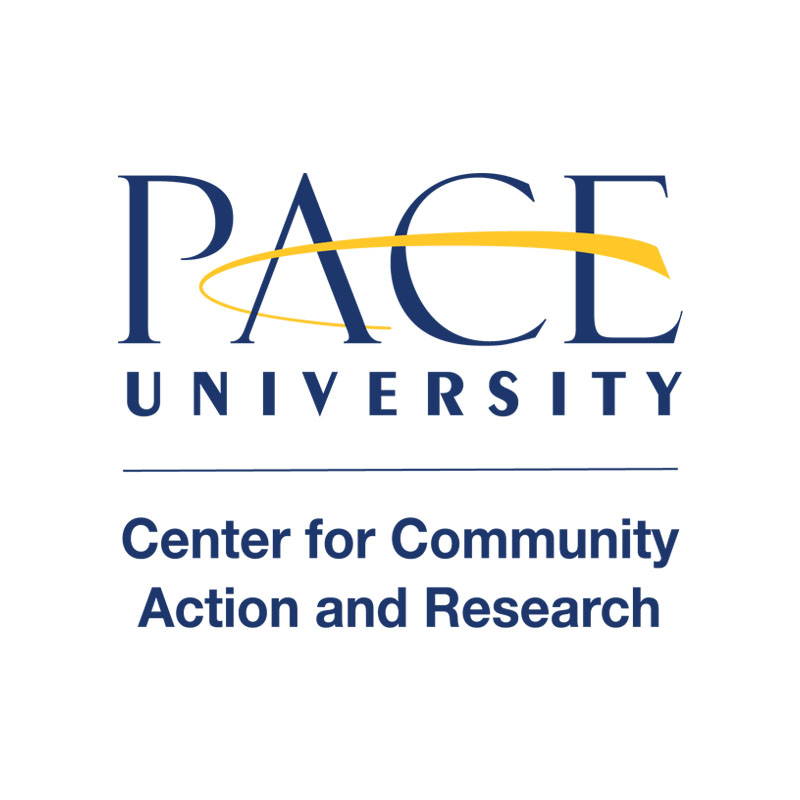Why Do I Vote?
By Valerie Eristil, Student Projects Coordinator
As we near the end of 2019, many of our collective thoughts have already focused on the 2020 election. 2016 was my first year here at Pace, the year of the previous Presidential Election. I recall the campus being so filled with expectation for that November that you could feel, see it, and hear about it everywhere you went. Natalie Hernandez is a senior Digital Journalism major and the Social Justice and Unity Ambassador for SGA. Not unlike myself, Natalie’s first experiences with politics and voting were during that year. “I was excited because I thought my vote counted (and I still do). Even though the outcome wasn’t what I wanted, I’m still hopeful for the future with this upcoming election.” That election definitely taught me that being involved in my community does not end with a vote but it is a very good start. Like Natalie, the outcome was not what I had hoped but it gave me reason to continue to be involved and aware of the social and political world around me.
Regardless of where you find yourself on the political spectrum, it’s safe to say this election is a tremendous deal. However, before we get to the 2020 elections we first have local elections on November 5, 2019. One of the bigger appeals of being a citizen of this country is possessing the ability to actively take part in our democracy by voting in local, state, and federal elections. I asked a few members of Pace’s community what exactly voting means to them and why they think it is so important in both local and national election years. Here is what they had to say.
While conducting these interviews, I noticed there were many similarities in the answers these Pace community members gave. When asked why they vote, the participants all offered a similar sentiment. As Dr. Kimberly Collica-Cox of the Criminal Justice department put it, “I vote because I think it is important to stay informed and be a part of the political process. We are voting for those who will serve as our representative – our voice – in government.” It seemed to be agreed upon among the participants that voting is considered an important civic duty that we have the privilege to exercise. Those who offered their opinions on this topic used language like privilege, responsibility, and duty when describing why they vote, which says a great deal about the importance of it. Rachel Simon, Interim Director of the Multicultural Affairs and Diversity Programs office at the Pleasantville campus, when asked why she voted responded, “I vote because I want to be sure that my rights and the rights of others are protected by the systems in place to protect us. I vote because I want the people in power to have me in mind and because I’ve seen the positive impacts of voting on public policy and the environment.” It is important for us to remember that not all people who reside in the United States can vote. Those with felony convictions and those who lack citizenship cannot participate in this act of democracy, which is simply another reason why everyone who can should vote. Your vote can represent your voice and the voice of others in a way that matters.” Kelly Lang, a Graduate Student, told me, “Voting has been important to me because I never realized what a privilege it was until I turned 18. When my parents first came to the US, they weren’t able to vote on issues they felt were important because they weren’t citizens yet. I think that we are given a chance to make a difference in such a simple way that we should take advantage of it. I would tell people that they have this opportunity to vote where so many other people living in the US right now can’t vote and they are relying on voters for their voices to be heard.”
There is always the question of those who possess the ability to vote but choose not to. We’ve all heard the reasons: “My vote doesn’t really matter,” “The electoral college doesn’t care about one vote,” and so on. So I asked our participants how they’d respond to these types of sentiments. Rachel Simon said, “I’d remind them of policies that have been implemented or overturned by elected officials: slavery, weekends, clean air and water act, child labor, immigration rules, and on and on. Voting matters, and if it doesn’t feel like it impacts you (because you don’t breathe air I guess) then you should think about your amazing privilege and vote to support those without that privilege.” You see, choosing not to vote because you think it won’t make a difference is on par with choosing not participate in a game because you think the odds are you won’t win. This removes any possibility of a positive outcome because of the fear of a negative one and that line of thinking is extremely counterproductive. Change does not come without effort. Student Maria Snelling had this to say: “Your vote makes a difference. And maybe you don’t agree with either candidates at hand, but every vote matters. You have the opportunity to participate in the way our country, state, and community are being run.”
In all regards, I think we can all agree that voting is essentially important to the way we live in this country. As a young black woman, I am painfully aware of how recently people like me have been granted the right to vote. I vote because I can and I vote because others cannot. I vote because I take issue with the current social and political climate in our country and I know that I can take part in something that can create change. To those who do not feel that they have any say in the way our country operates, I have only this to say: If people 50 years ago believed that, I wouldn’t even be able to have the conversation of whether you should exercise your right to vote or not. I doubt I’d even be able to pursuing a higher education. We have come so far as a country because people like you and I have the ability to make our voices heard so speak up, use your power, and change the things you cannot accept. You have that right. To those of you are not yet convinced at least register to vote, I’d like to invoke the words of Rachel Stemberga, a senior Criminal Justice major. Rachel said, “Register anyway. It takes two seconds and it can’t hurt. If there’s a topic you’d like to take a stance on you should take the opportunity to use your power. It’s important to be aware. We can change a lot of things just by voting.”
If you are now feeling inspired to vote in the upcoming November elections, the CCAR will be driving students who are registered to vote in Pleasantville to our local polling place from 12-5. If you need help figuring out where your polling place is, checking if you are registered to vote, or would like to register, come to the CCAR in Choate 51W or visit vote.org.

